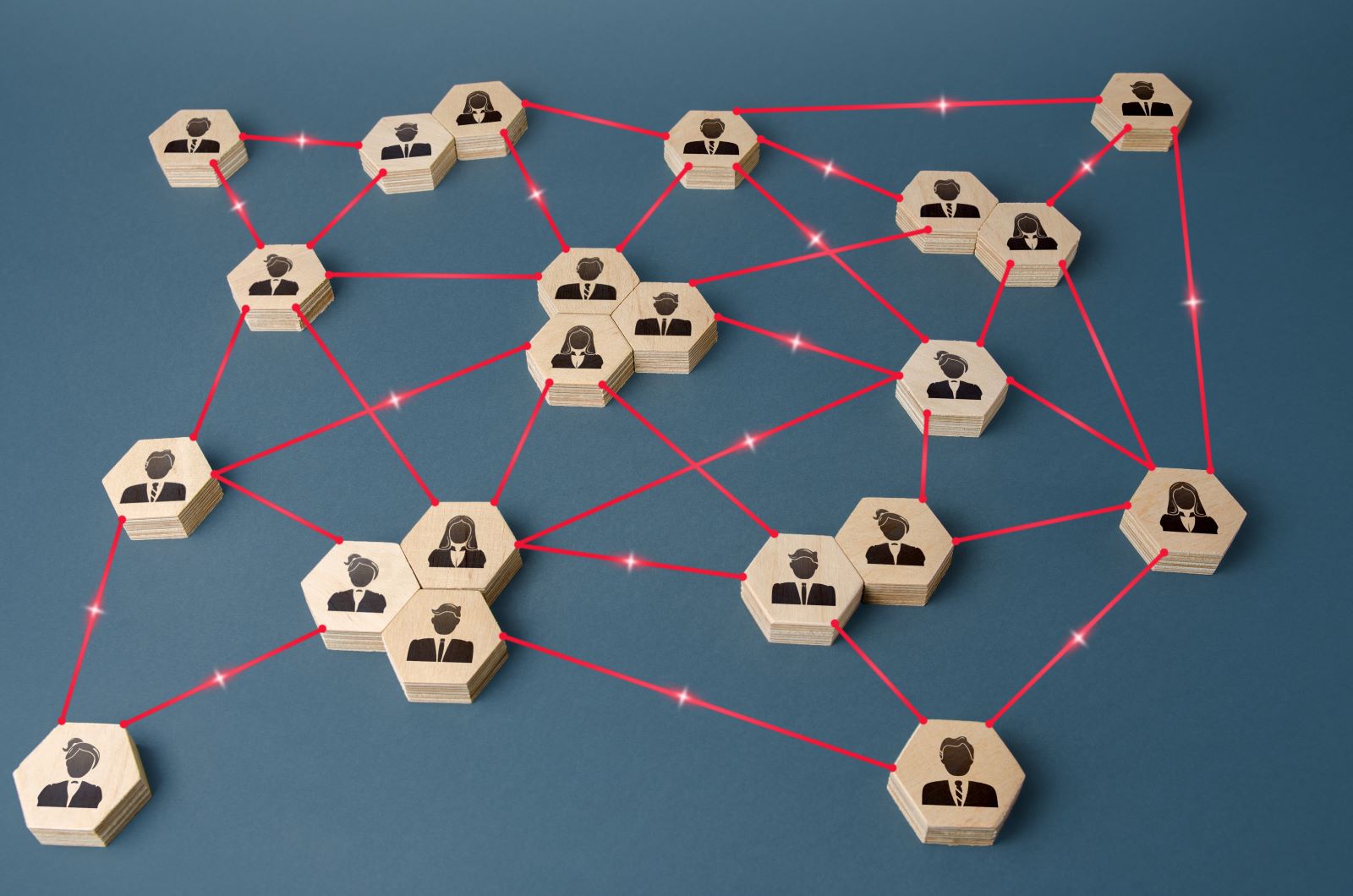What are DAOs and will they upend traditional business structures?

Not just an anarchist’s fantasy: What are DAOs and what do they mean for traditional business structures? Decentralized Autonomous Organizations (DAOs) are online organizations collectively owned and managed by a group of members, with all of its decisions autonomously encoded in blockchain. The decentralized nature of these organizations means they are without the influence of any central authority or government, and typically puts each member of the DAO on equal footing, rather than setting up a power-based hierarchical structure. They are public and transparent organizations that do not require legal backing and are governed by rules that cannot be edited without anyone taking notice.
The blockchain infrastructure: Usually built on Ethereum, DAOs are governed by smart contracts that embed the rules and governance of each DAO in code, eliminating the need for management, bureaucracy, or hierarchy, and allowing them to function autonomously through a consensual protocol. They usually have a funding system that can be used to compensate organization members for their contributions, as well as a structure for investors.
There are different membership / ownership structures: The two main membership structures are token-based and share-based memberships, both of which are crowdfunded by issued tokens. Token-based memberships allow anyone who holds tokens to own equity and vote in a given DAO. Governance tokens may be obtained through trading without permissions on a decentralized exchange, bought or earned by working for the DAO. Share-based memberships, on the other hand, allow prospective members to submit a proposal to join the DAO in return for a tribute in the form of tokens or work.
What’s their purpose and benefit? For one, they eliminate whimsical decisions made by CEOs and dodgy book manipulation by accounts. They also allow people who don’t have any foundation of trust (read: strangers on the internet) to work together using a previously-set transparent code that anyone can verify and no one can alter, creating endless potential for global collaboration. DAOs have totally flat structures, rules that can only be changed by collective member votes, and votes that are tallied automatically. Voting structures can be modified on a case-by-case basis, but are usually weighted against what they’ve contributed to the project, according to CNBC. In fact, all services carried out by and within DAOs are handled automatically, removing human discretion and human error from organizational governance.
How are they being used? DAOs can be especially useful in setting up charities, freelancer networks, and ventures and grants. DAOs can be used for investment, charity, fundraising, borrowing or buying NFTs.
DAOs are part of a trend to decentralize the internet, finance and the future of work and are central to the Web 3.0 space. In many ways, DAOs — which promise to decentralize how people organize for business and other interests — are a core component of Web3. Much like the metaverse and Web3, exactly how DAOs operate is still being formulated (not to mention, regulated).
Will DAOs replace traditional companies? Regulatory and legal frameworks for DAOs are still being formulated, making it difficult for even their staunchest supporters to predict their future with any clarity, but one DAO investor and builder told CNBC that they could be the next LLCs. The same investor said that DAOs remain a risky space and warned investors to “only spend what they can afford to lose.”
The biggest 20 DAOs held upward of USD 6 bn of digital assets last year, according to a 2Q2021 report about Ethereum’s ecosystem by ConsenSys. Some of the biggest DAOs include decentralized finance (DeFi) projects like Compound, Uniswap, Bankless, and Gitcoin
DAOs are gaining traction among high net worth individuals and VCs, with bn’aire Mark Cuban calling them “the ultimate combination of capitalism and progressivism.” In August, Syndicate, a community-based investment protocol for DAOs, raised USD 20 mn in a Series A round led by VC firm Andreessen Horowitz, securing backing from 150 investors, among them former Reddit co-founder Alexis Ohanian, actor Ashton Kutcher and all-around chameleon Snoop Dogg.
DeFi has renewed interest in DAOs. DeFi, an umbrella term for financial applications in crypto (mainly stablecoins) that is geared towards facilitating peer-to-peer transactions and disrupting financial intermediaries, took off last year in tandem with the rise of crypto (explainers here and here on DeFi). Because DAOs provide a way to conduct secure financial transactions and because their rules are recorded on blockchain, they eliminate the need for third parties in financial transactions, making those transactions simpler to conduct.
DAOs got a bad rap because of the massive failure of a fund called “The DAO.” Created as a decentralized investment fund in 2016, The DAO was built on blockchain, but was hacked for the equivalent of USD 50 mn worth of Ethereum as a result of coding errors. To this day, DAOs continue to require majority votes to change bugs or holes in their code, making them vulnerable in that respect.
That said, DAOs are not without their critics, some of whom don’t believe in the automation of decisions that should be governed by human relationships. Others are playing down “the hype” of DAOs as the next asset class after NFTs, even as they see how it is potentially changing how work is organized. One early DAO adopter “jokingly” called them “group chats with a joint bank account.”